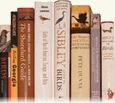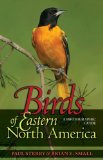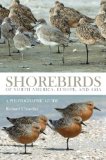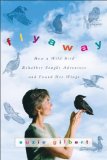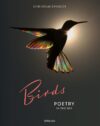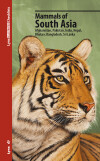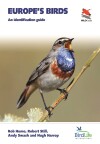My wife and I enjoy visiting the US National Parks. She enjoys photographing the outdoors, and the parks are a great place for that. And for me there are always birds. And as anyone who’s watched the Ken Burns’ documentary knows, the parks are just fantastic places.
When looking at a map of the parks across the country, it’s hard to avoid noticing the area of the Colorado Plateau, the region encompassing southern Utah, northern Arizona, and western Colorado. It stands out because there are seven national parks there, relatively close to each other. Proceeding counter-clockwise from the south, as we would be visiting them, they are Grand Canyon in Arizona; Mesa Verde in southwest Colorado; and Arches, Canyonlands, Capitol Reef, Bryce Canyon, and Zion in Utah. Collectively, this route is known as the Grand Circle.
Read the rest of this entry »
by Rebecca K. O'Connor
This falconer’s memoir revolves around her first year with a Peregrine.
Read the full review »
The Well-read Naturalist just posted about a new FTC ruling regarding endorsement disclosures. The intent seems to be to make sure that relationships “between advertisers and endorsers – connections that consumers would not expect – must be disclosed”. We’ve all seen celebrities endorse products in commercials, on talk shows, etc, without being clear if this is their own opinion, or if they’re just getting paid to say it. Online, there are all kinds of websites talking about products. Sometimes it is hard to tell if they are by a legitimate third party, or just some kind of shill-site created by the manufacturer.
It’s hard to argue against attempting to clear these muddy waters. But these guidelines seem ambiguous to me, such that I wasn’t sure at first if they would apply to a site like mine. After looking through them more, I think they might. Regardless, as annoying as it is, in a situation like this I’d rather be safe than sorry.
I do not get paid to write reviews, or receive any sort of payment from publishers. However, I do receive complementary review copies from publishers and authors. Many of the books I review now are such review copies. But whether a book I review is sent to me by the publisher or bought with my own money, it does not affect how I review it. I don’t do this to get free books; I just want to provide a service for fellow bird bibliophiles. Honestly, when I started this site almost three years ago, it never even occurred to me that I would eventually be getting free review copies.
To comply with the FTC, I will now add a statement to each review where the product was provided by the publisher or author. And I will be going back and doing the same to previous reviews.
I agonize over the star ratings in my reviews. I don’t even know if anyone out there cares what the rating is, but I do. If I’m going to rate something, I want that rating to reflect my opinion as accurately as possible. The good thing is that the more reviews I do, the better I’m able to compare books with each other. But looking back, I’ve found that I no longer agree with some of my ratings.
Here are the changes that I’ve made:
-

 A Field Guide to Warblers of North America (Peterson Guide)
A Field Guide to Warblers of North America (Peterson Guide)
by Jon Dunn and Kimball Garrett











REVIEW. This was one of my original reviews, and is much shorter than one I would write now. I need to just rewrite it. But in the meantime, I went ahead and changed the rating because I was too harsh initially. I could go with either 4 or 4.5, but went with the higher because this guide is incredibly useful.
My complaints about it involve size (too small, thus making it too thick and reducing picture sizes), and the printing quality of the plates. However, it is full of useful information and illustrations. I think this is one of the few family-specific ID guides every North American birder absolutely needs. It’s still the first resource I turn to for warbler questions.
-
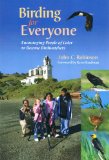
 Birding For Everyone: Encouraging People of Color to Become Birdwatchers
Birding For Everyone: Encouraging People of Color to Become Birdwatchers
by John C. Robinson











REVIEW. My initial rating was based on my opinion that this is an important book for the future of birding. My opinion regarding that has not changed. However, based strictly on the content and organization, I would have given it a much lower score. I think 3.5 to 4 stars is a good range, considering everything.
-
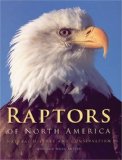
 Raptors of North America: Natural History and Conservation
Raptors of North America: Natural History and Conservation
by Noel and Helen Snyder











REVIEW. I’m not sure what I was thinking here. After reading many more bird family books, I find that I keep comparing them to this one. The photography and text are both outstanding. It’s still not the place to turn to for identification or a quick summary of natural history information. But it’s a great read, and lets you really get to know these birds.
-
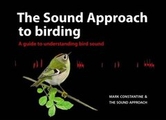 The Sound Approach to Birding
The Sound Approach to Birding
by Mark Constantine and The Sound Approach











REVIEW. This is a revolutionary book that will increase your understanding and enjoyment of bird sounds. It fully deserves the highest rating.
-
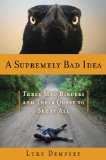
 A Supremely Bad Idea: Three Mad Birders and Their Quest to See It All
A Supremely Bad Idea: Three Mad Birders and Their Quest to See It All
by Luke Dempsey











REVIEW. I really enjoyed this, but comparing it to some other ratings, I think I need to drop it down a notch.
-
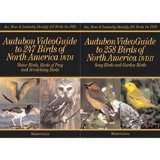
 Audubon VideoGuide to 505 Birds of North America
Audubon VideoGuide to 505 Birds of North America











REVIEW. This will be less and less relevant as time goes on. The internet is already a better source of bird videos and (especially) photos. And now we have portable applications such as iBird. There may still be a market for a disc-based collection (DVD, or better yet, blu-ray). But this is not that collection – it would need to be completely overhauled and updated.
-
A Guide to Bird Watching
by Joseph J. Hickey











REVIEW. No, this classic won’t make modern birders “better” at their craft. But it is still worth reading for many reasons, foremost among them Hickey’s still-pertinent plea that bird watching be more than simple ticks on a checklist. Definitely worth reading.
There are a few more ratings that I’m less than confident about, but I’ll let them stand for now.
Does anyone find these ratings useful?
by Paul Sterry and Brian E. Small
Incredible photographs and exceptional design highlight these new North American field guides.
Read the full review »
Here are a couple of new reviews. But first: in my last Review Roundup post, I mentioned that I was about to become a father. Well, now I have! Our daughter, Cecelia Grace, was born on September 24. So far everyone has been doing pretty well, just tired. I took last week off of work to help out, thinking I could get some reading and reviewing done as well. Heh, you can guess how that turned out! So I may be a little slower updating the site in the coming days.
Another thing I wanted to mention is the establishment of a new natural history book review site! John Riutta, he of the fantastic Born Again Bird Watcher blog, has created The Well-read Naturalist. He will be reviewing all kinds of natural history books. I’ve always enjoyed his reviews, so I’m looking forward to more!
by Richard Chandler
A very good identification guide to the shorebirds of the northern hemisphere.
Read the full review »
I wanted to go ahead and get this posted, since I may not have much time in the immediate future. If all goes according to plan, I’m going to become a father tomorrow!
I also just found a site with a good many bird book reviews – The Oceanwanderers Book Shelf. Unfortunately, there hasn’t been a post since December.
by Suzie Gilbert
A look at the crazy life of a bird rehabber .
Read the full review »
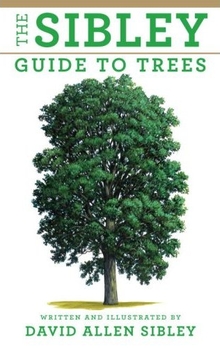

by David Allen Sibley
September 15, 2009; $39.95
Nine years ago, The Sibley Guide to Birds was published and quickly became generally regarded as the best North American field guide. And now Sibley turns his tremendous talent to a very different group of organisms.
The Birder’s World magazine blog has an excellent multi-part interview with Sibley. In it, he discusses why trees, the process of creating the guide, why birders will enjoy it, and much more. It’s a fascinating interview, and made me really look forward to the guide. Amazon also has a video interview.
also has a video interview.
I’m very excited about this, since I’ve been telling myself for some time that I need to learn trees better.
